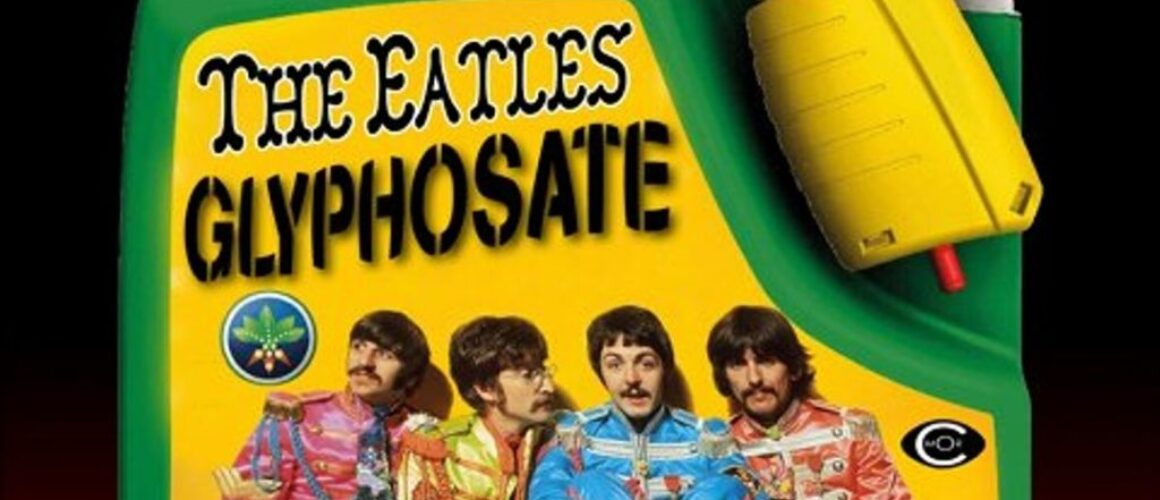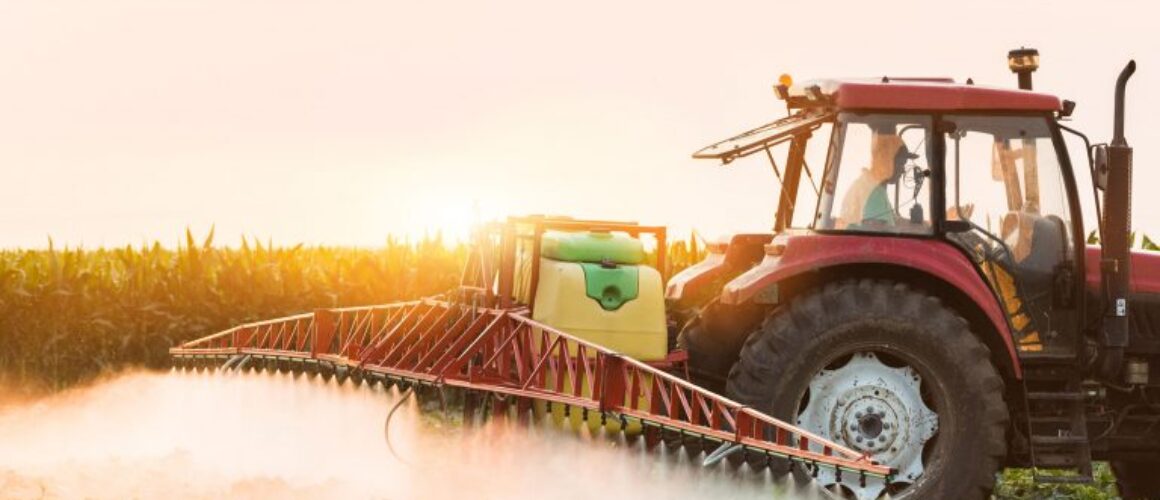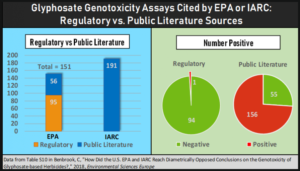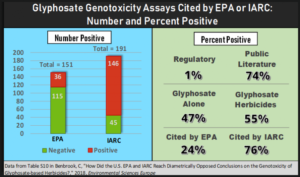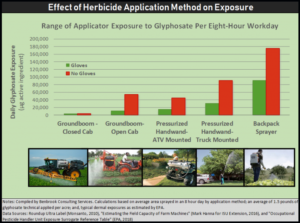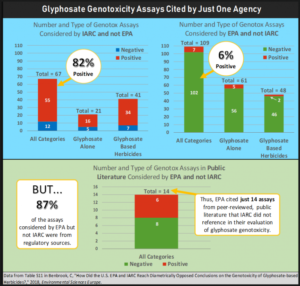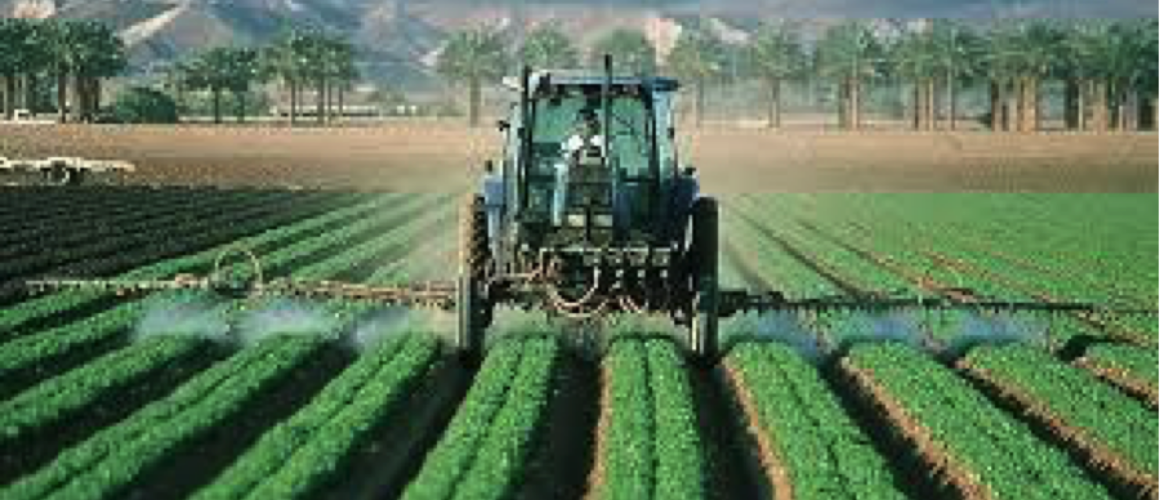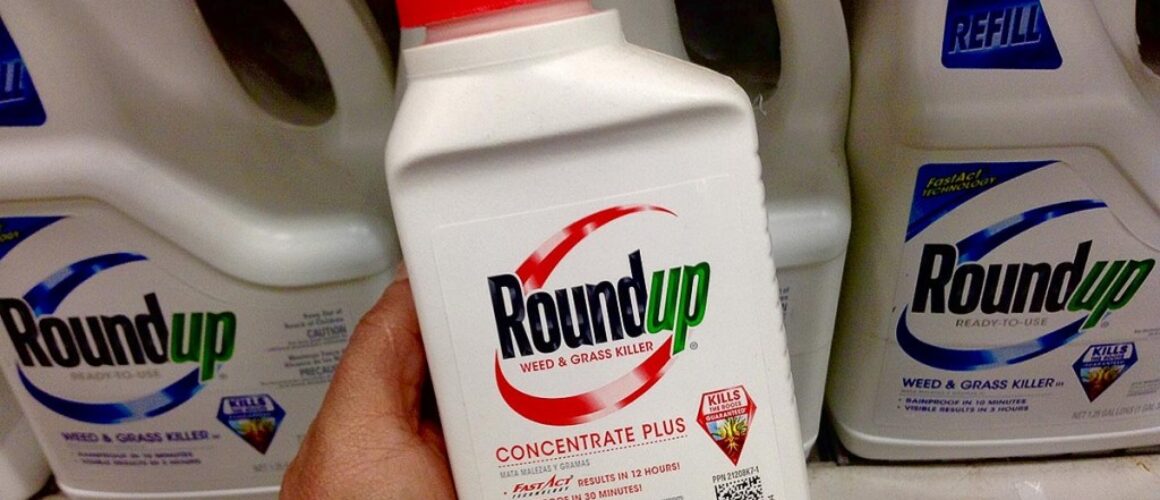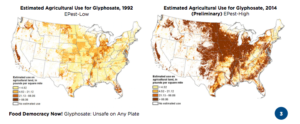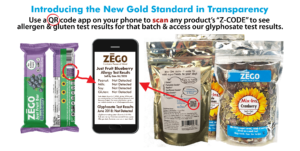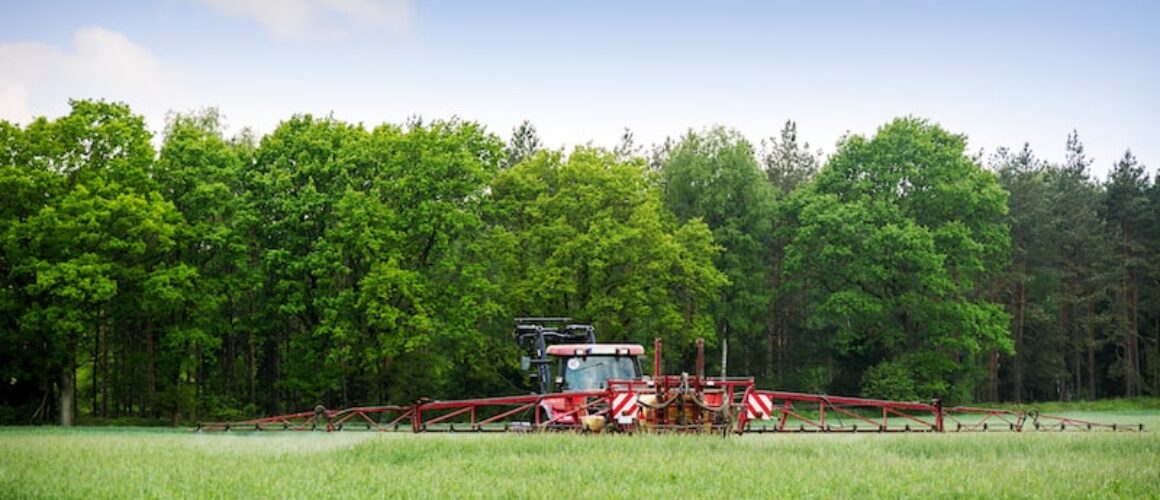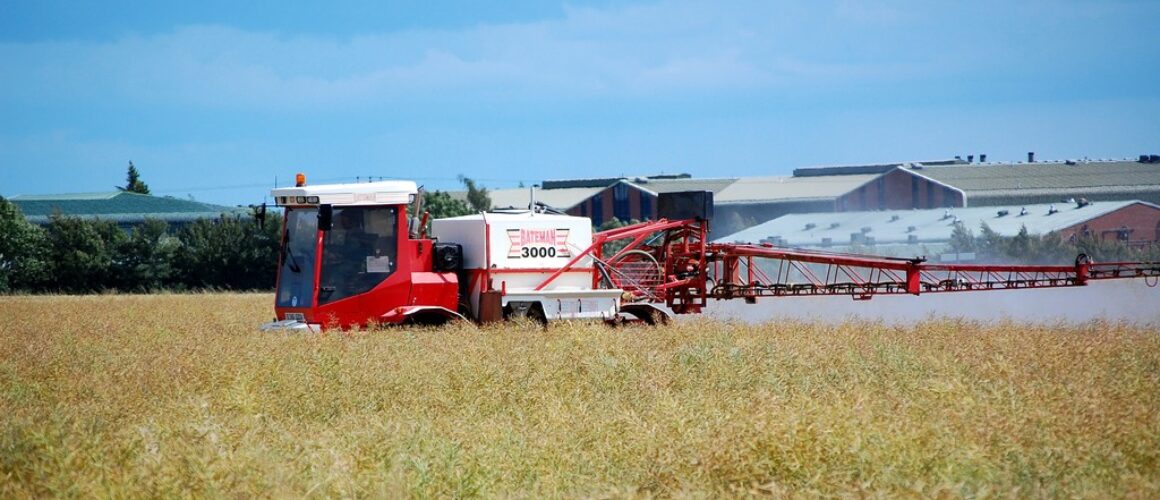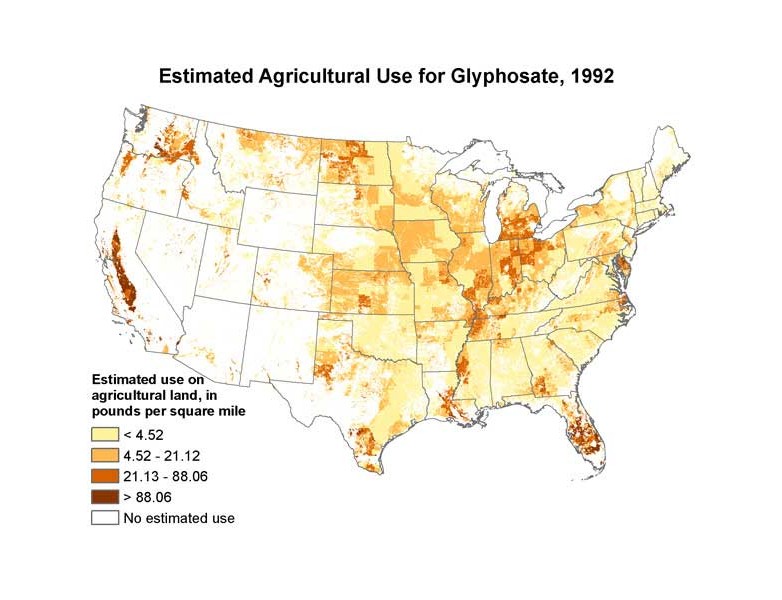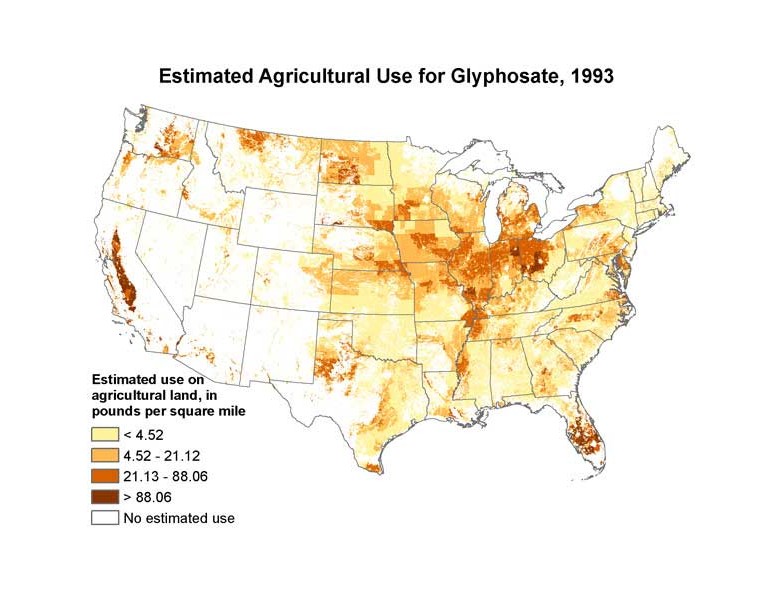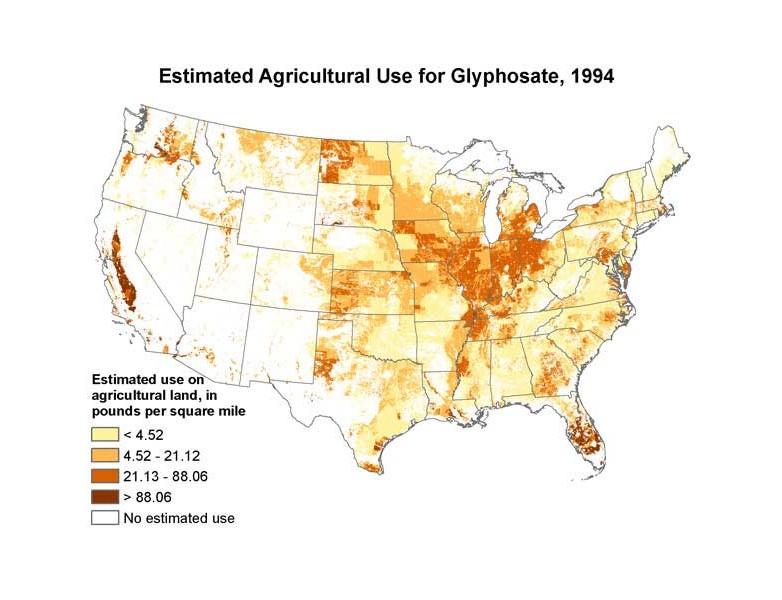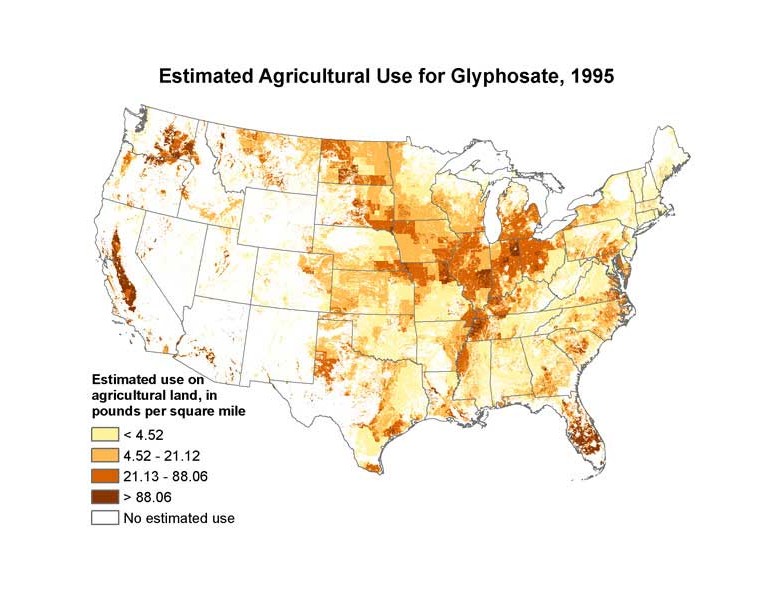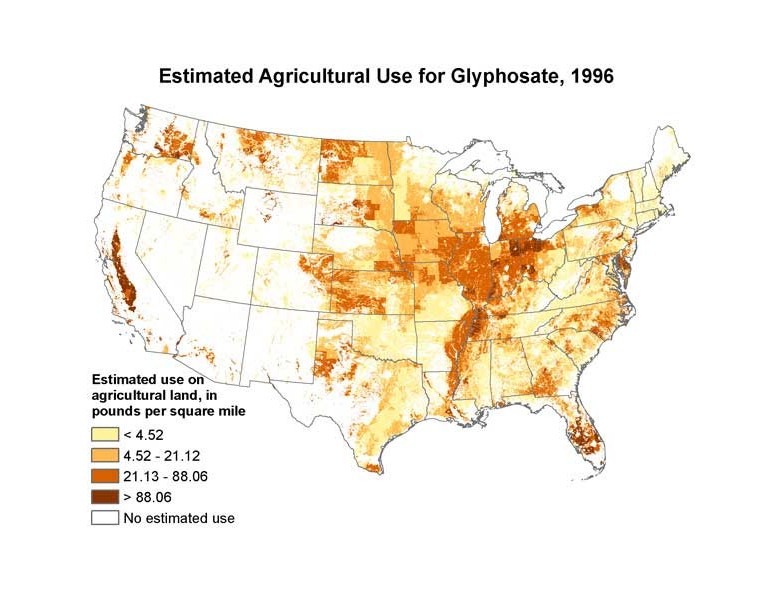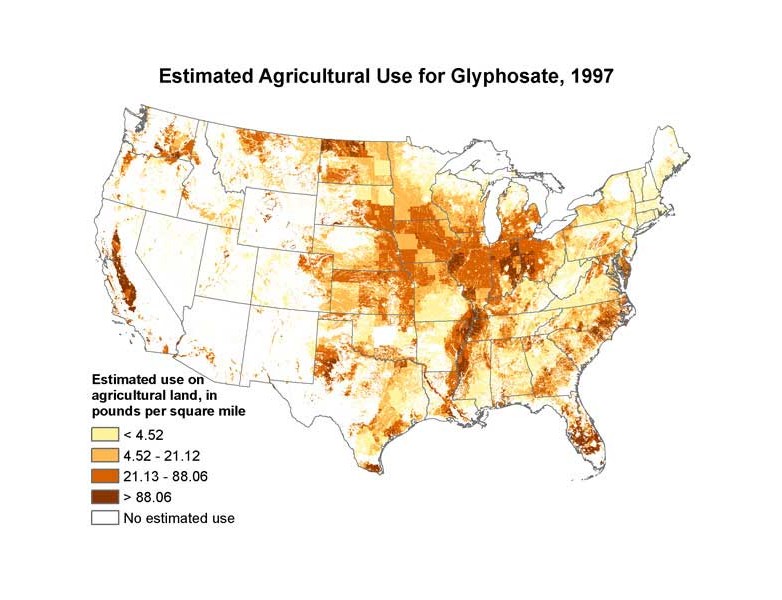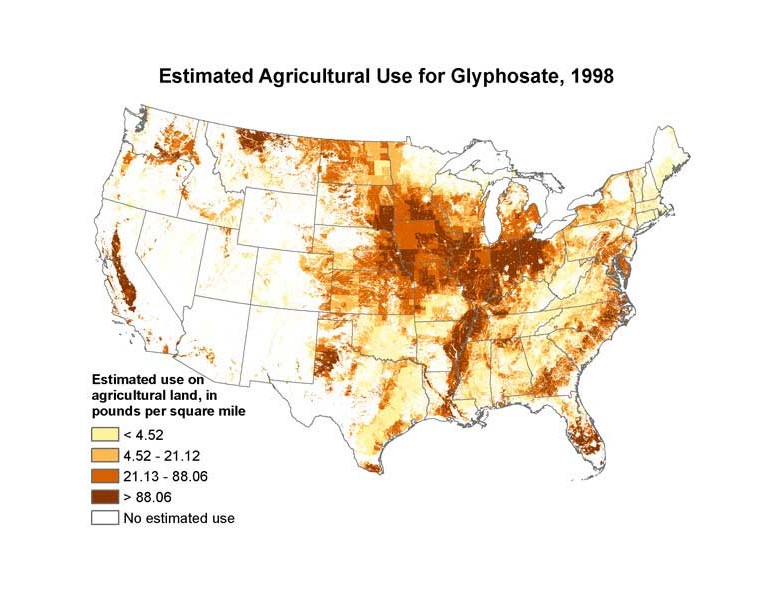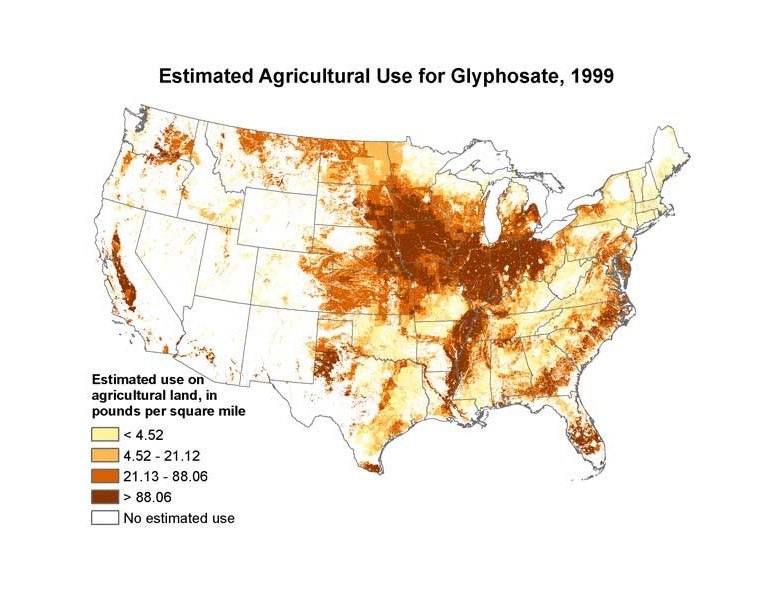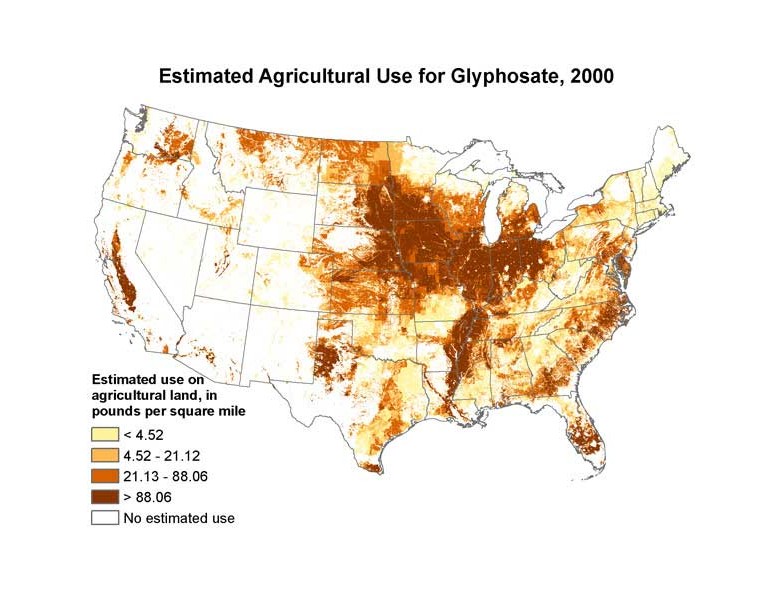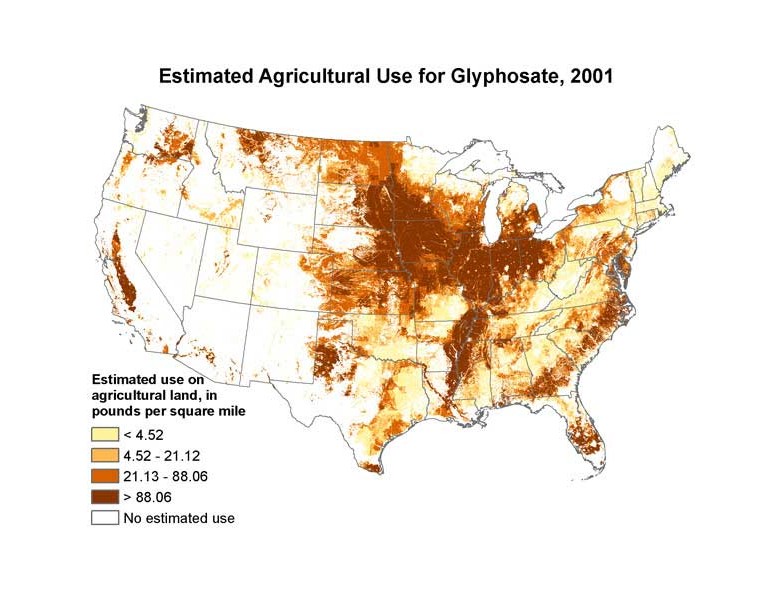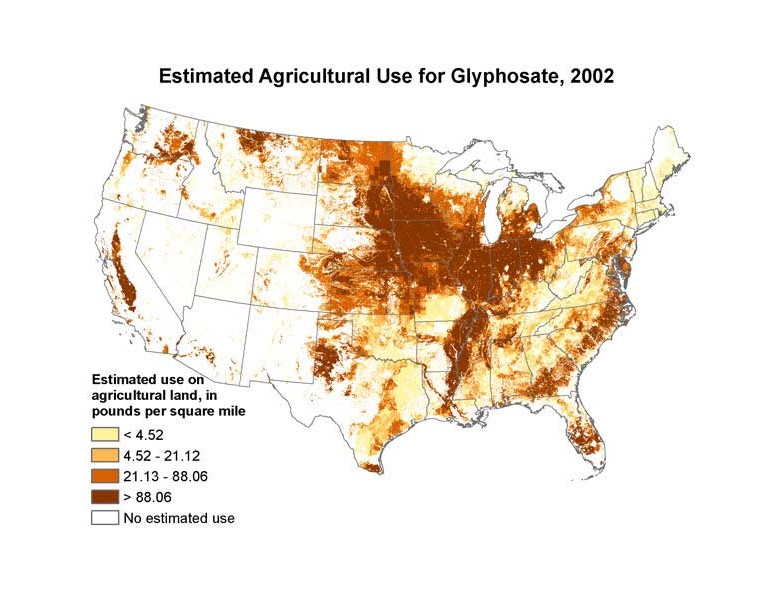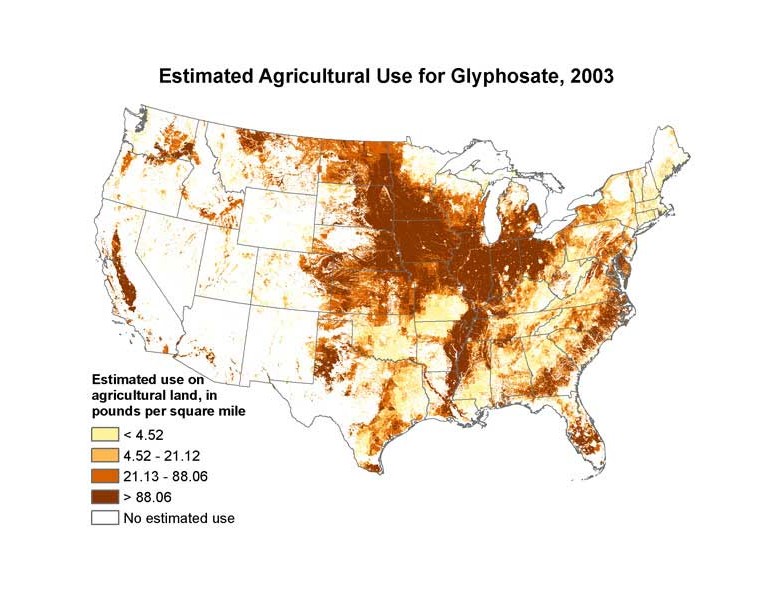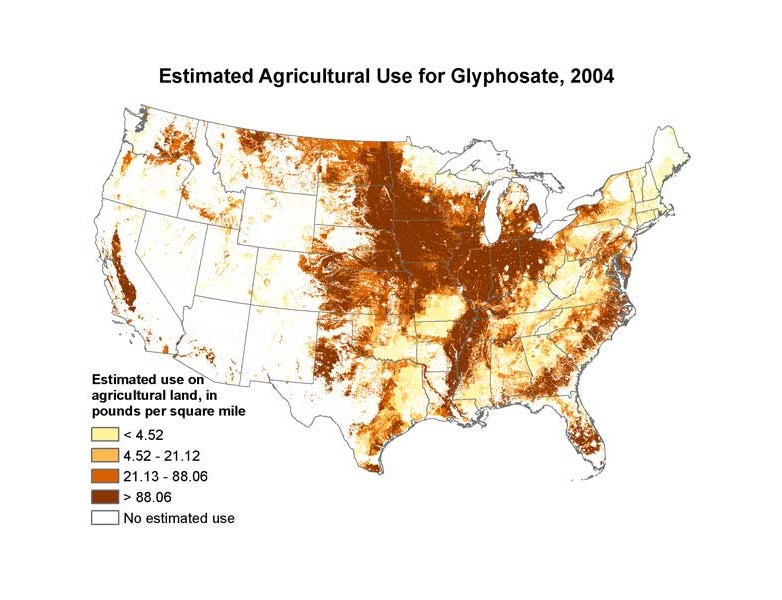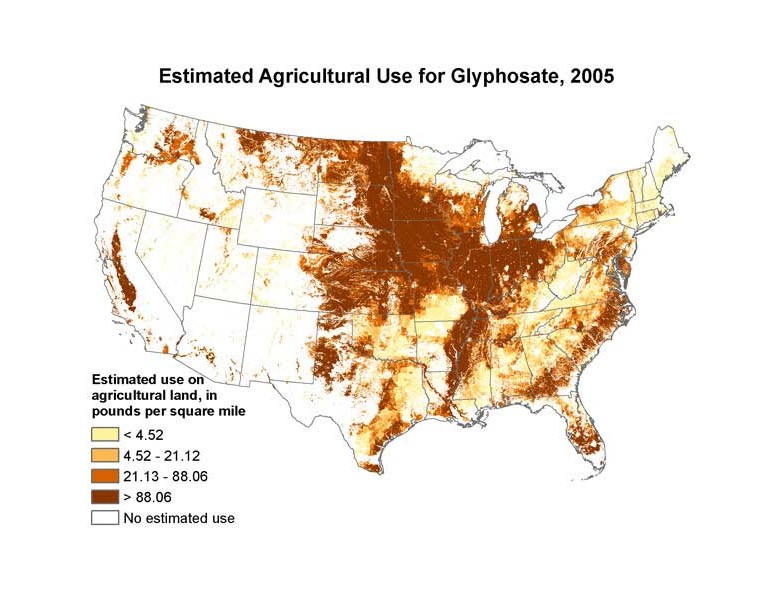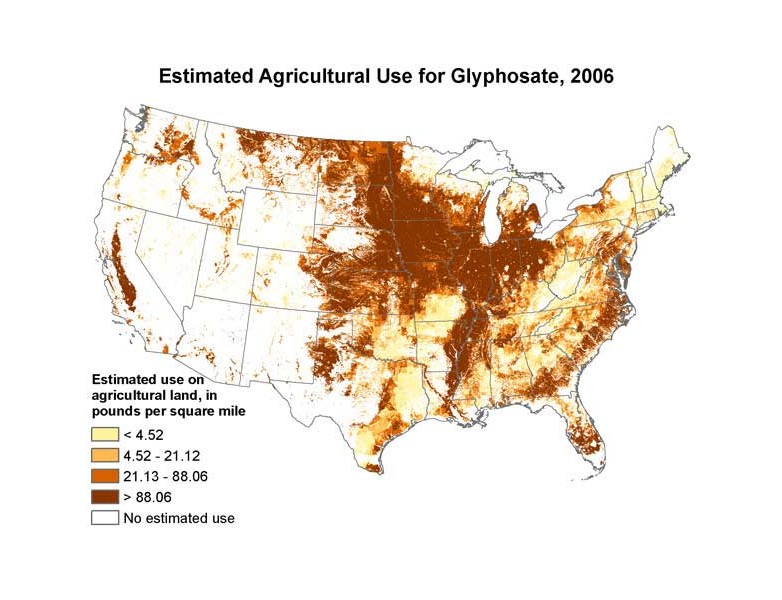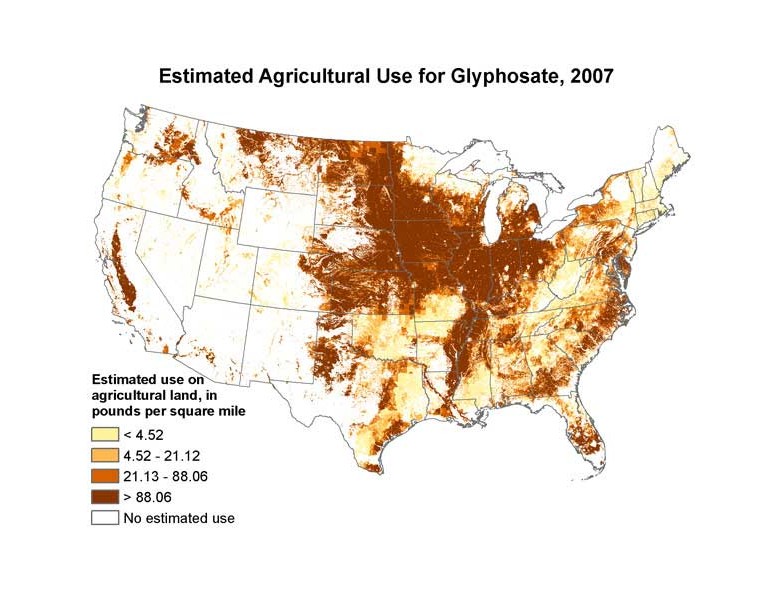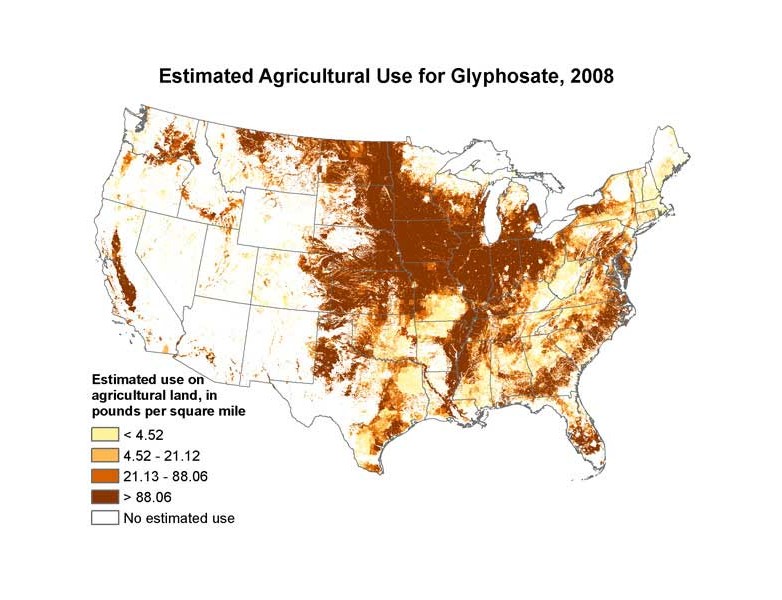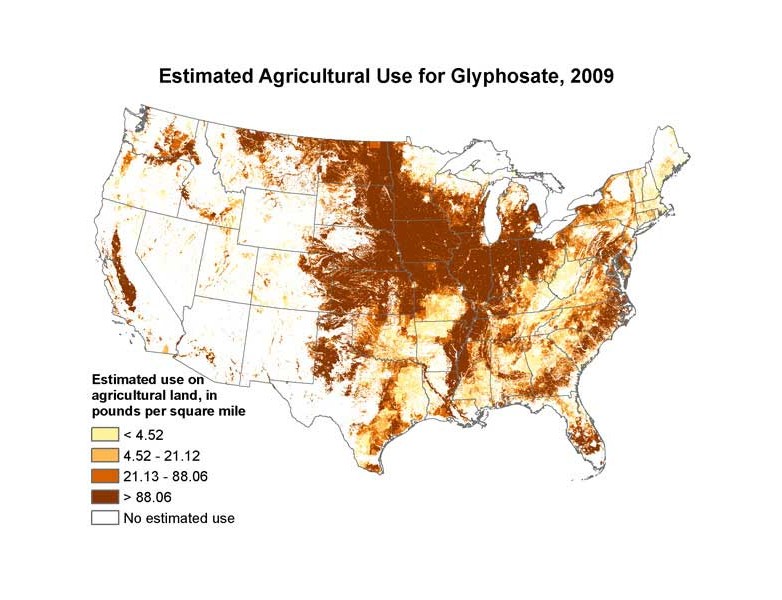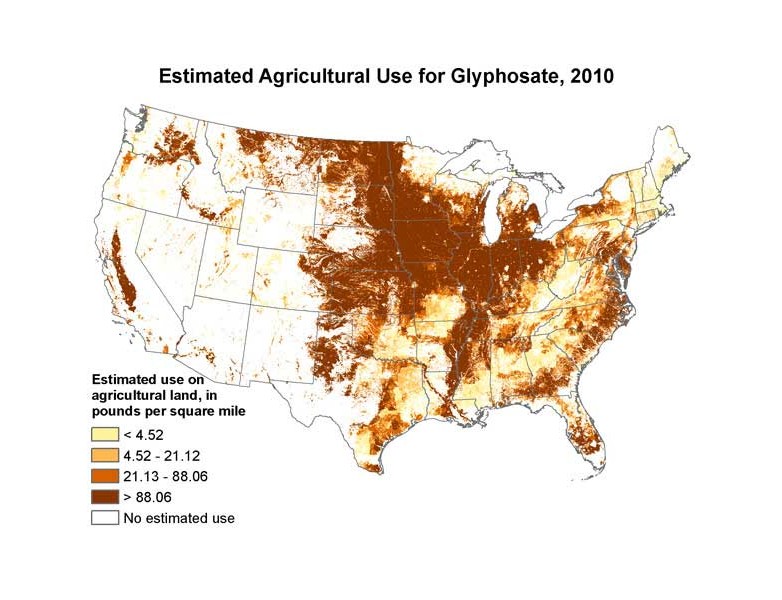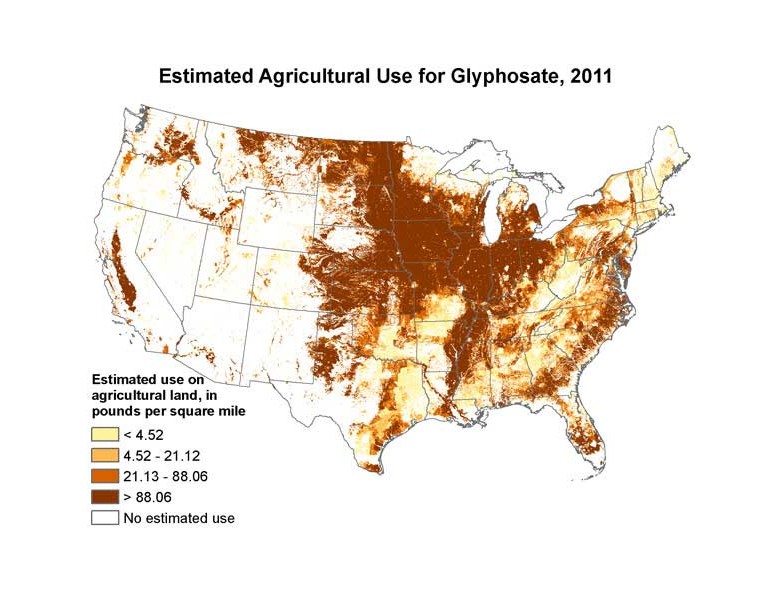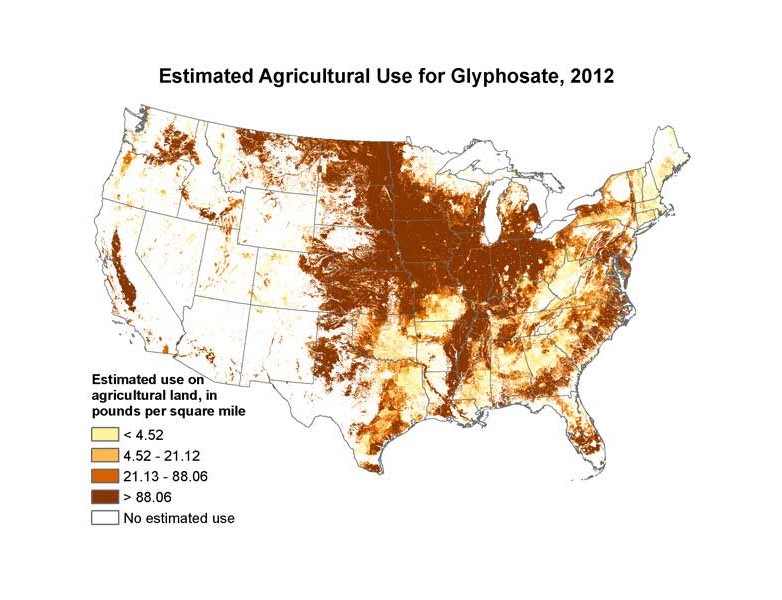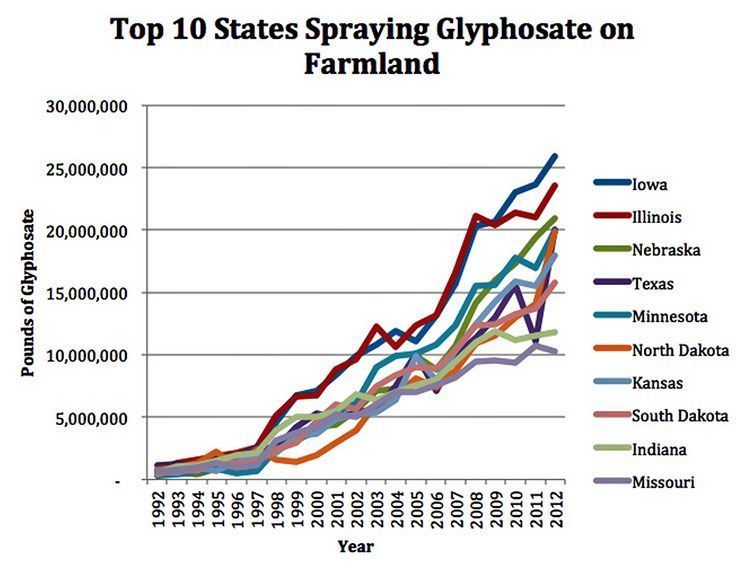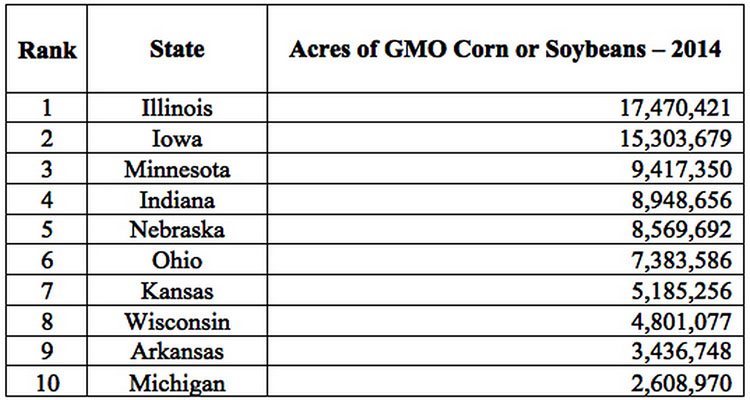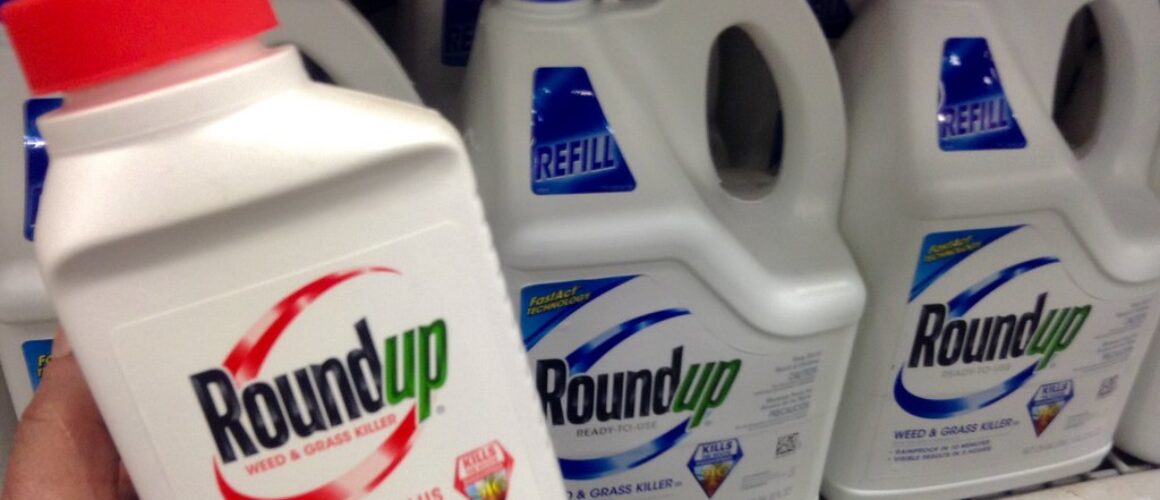On Friday, a stunning and decisive verdict was reached on the world’s most pervasive weedkiller, glyphosate. In a swift and unanimous decision, Monsanto was found guilty on all charges and accused of malice, oppression or fraud, relating to their agrochemical, glyphosate. The jury awarded $289 million. The class action was led by a groundskeeper dying of cancer.
According to the Guardian, “one of the UK’s largest DIY retailers is now reviewing the sale of Roundup weedkiller products amid mounting concerns about their use, after the US jury found that the herbicide had caused a terminally ill man’s cancer.” Home Depot, Lowe’s and others would be wise to consider doing the same, given the liability now associated with this product.
Bayer, the company who recently purchased Monsanto, also has a lot at stake. The share price was hit on Friday, and its open will be in play on Monday morning. The merger has not yet closed, and Friday’s verdict, no doubt, has Bayer attorneys scrambling. Some are calling for an adjustment to the purchase price, others are suggesting that Bayer may set up an escrow account to address the payments required in these ongoing court cases.
However, there are thousands of plaintiffs waiting in the wings, and with an almost $300 million verdict in the first trial against Monsanto, Bayer would have to secure a sizable escrow account, as those numbers start to get significant quickly.
In 2015, the World Health Organization sounded the alarm on glyphosate, an ingredient found in the world’s most-used pesticide, Roundup. It was again a long overdue decision, given what independent scientists have been warning for years.
Dr. Don Huber, a Professor Emeritus of Plant Pathology at Purdue University, a land grant institution, has been studying plants for 55 years.
He has received various awards for his scientific accomplishments and contributions to government.
His agricultural research the past 50 years has focused on the epidemiology and control of soil borne plant pathogens with emphasis on microbial ecology, cultural and biological controls, and physiology of host parasite relationships.
He is someone I turned to in the early years of my work, when I read, ”Pesticides may be putting young children at risk of cancer.” I thought of him again as the World Health Organization headline hit about glyphosate’s probability as a cancer-causing agent.
A few years ago, the EPA sought to increase the allowable levels of a controversial chemical used on our food crops, and Chinese citizens announced that they are suing Monsanto, the company that makes it, for full disclosure.
It’s hard to hear all of this.
When I worked as a financial analyst, I dismissed concerns like this. They disrupted business models and seemed to come from wild-eyed activists. I didn’t want to hear that the foods I’d been feeding my family might cause harm. I wanted to believe that the studies that had been conducted on these products weren’t influenced by industry. In other words, this was something that I didn’t want to learn then, and something that is still hard to process now.
But as the headline hit about the World Health Organization’s concern, while the EPA was voting to allow increased levels of these chemicals onto our food crops, I thought back to May 2011, when I had the opportunity to interview Dr. Don Huber, a plant biologist who created a stir with a letter that he sent to Secretary Vilsack at the USDA urging a reconsideration of the safety status of a chemical widely used on our food crops. In that conversation, we had spoken about this ingredient called glyphosate and its use in a popular weedkiller that I had been told not to keep under my kitchen sink for fear of what it might do if it was ingested by children.
He’s in his 80s, and he is also a father, a grandfather and has had a 41-year military career and is now a retired Colonel, having evaluated natural and manmade biological threats, including germ warfare and disease outbreaks and worked on committees that are part of the USDA National Plant Disease Recovery System under Homeland Security. Quite honestly, his bio reads like that of one of our country’s greatest heroes. He’s dedicated his life to putting food on the table for American families.
So when controversy flared up over the letter he wrote to the USDA, plenty of people chimed in. He was venomously attacked and lavishly praised. It was a firestorm.
And having worked as a financial analyst, I had learned years ago, back on the trading desk, not to rely solely on other people’s reports, to do my own research. So I reached out to him.
And while the controversial focus of Dr. Huber’s letter to Secretary Vilsack was his concern over a new pathogen that appears to be impacting the reproductive health of cows, when I had the opportunity to speak with him, the focus of our conversation quickly turned to glyphosate, a synthetic chemical used in a universal weed killer that is applied to both commercial food crops as well as residential landscapes around the country.
And at the time, it was an ingredient increasingly coming under scrutiny, with everyone from the Presidents Cancer Panel to the American Academy of Pediatrics urging us to reduce our exposure to pesticides due to potential health risks.
But in all candor, as he got talking that morning, it wasn’t something I wanted to talk about. It’s controversial and heartachingly poignant in light of the growing number of children with autism, cancer and other conditions. And I hadn’t paid any attention to it during my pregnancies, the toddler years of my children or any other time in my life. I’d been blissfully ignorant. At least that is what I thought.
But as he began to talk, I could not help but listen.
I had first learned about glyphosate when studying soy, one of the top eight allergens in our food supply.
In the mid 1990s, using a new technology, our soy was genetically engineered with new organisms to make it able to withstand increasing doses of weed killer, chemicals and glyphosate. When first learning about this soy and the ability to routinely douse it with these chemicals, to the former financial analyst in me, the business model made perfect sense. It enhances profitability of the chemical companies by enabling the increased sale of their chemical treatments and weed killers.
And as Dr. Huber spoke about glyphosate, which is the ingredient used in a weed killer known as RoundUp, a weed killer that I had applied countless times around our yard and one that is sprayed on our food crops like corn and soy, I listened, not really wanting to hear any of it, reflecting not only on what I had eaten during my pregnancies and fed our children, but also on the scope of the work of Professor Miguel A. Altieri of the University of California, Berkeley who had looked into unforeseen risks that might be associated with genetically engineered crops and these chemicals being sprayed on them:
“Glyphosate is a systemic herbicide (i.e. it is absorbed into and moves through the whole plant), and is carried into the harvested parts of plants. Exactly how much glyphosate is present in the seeds of corn or soybeans (genetically engineered to withstand this chemical) is not known, as grain products are not included in conventional market surveys for pesticide residues. The fact that this and other herbicides are known to accumulate in fruits…raises questions about food safety, especially now that more than 37 million pounds of this herbicide are used annually in the United States alone. Even in the absence of immediate (acute) effects, it might take 40 years for a potential carcinogen to act in enough people for it to be detected as a cause. Moreover, research has shown that glyphosate seems to act in a similar fashion to antibiotics by altering soil biology rendering bean plants more vulnerable to disease”.
And I paused.
The dominance of this weed killer in the marketplace is remarkable. In a recent article about glyphosate, the global news organization, Reuters, highlighted that these chemicals are part of an enormous market, with world annual sales totaling $15 billion, with more than $5 billion of that spent in the US alone.
But that wasn’t all that had been discussed. The Reuter’s article was titled “Cancer Cause or Crop Aid?” and so it was that question that I wanted to discuss with Dr. Huber having learned that in 2007, more than 185,000,000 pounds of Roundup were applied to US crops – the same year that reporting requirements of application rates were halted. In other words, despite the fact that the President’s Cancer Panel and American Cancer Society was reporting that 1 in 2 men and 1 in 3 women are expected to get cancer in their lifetimes, we had stopped counting how much of this we were spraying on our food.
According to Dr. Huber, glyphosate kills weeds by turning off key enzymes that produce defense mechanisms for plants. It essentially targets and destroys their immune systems by chelating, stripping, micronutrients like magnesium, copper and zinc from the plant. As a result, there are fewer of these key micronutrients in the plants and in our food supply.
And as Dr. Huber shared, as glyphosate immobilizes critical enzymes responsible for life and resistance in plants, it turns off the natural suppressive mechanisms, leaving these plants more vulnerable to diseases (like Sudden Death Syndrome in soy and Goss’ Wilt in corn), as well as increasing levels of toxins and mycotoxins as seen in the Root Rot and Head Scab being seen in our cereal crops. And all I could think about were the farmers in Kansas, Iowa, Colorado and Washington states that I’d met with over the last few years and our ongoing dialogues. I reflected on how this weed killer had been approved for use prior to the introduction of the genetically engineered organism and toxins into our crops, and I wondered about the synergistic toxicity of these chemicals, once again reflecting on the need for further testing.
And as Dr. Huber spoke about the increasing amounts of glyphosate being applied to our food crops, especially crops like corn and soy that have been genetically engineered to withstand increasing doses, he highlighted the unknown implications that this increasing exposure might be having on the health of animals and humans consuming these foods. He expressed concern over the approval of new genetically engineered crops designed to withstand increasing doses of glyphosate, saying that with the approval of every new RoundUp Ready crop, there is a 2-5 times increase in the amount of glyphosate that is applied.
With these increasing doses and applications, I asked him what the “acceptable levels of risk” is here in the US. Given that residual levels of glyphosate are found in human and animal feed, I asked if studies had been conducted to assess the long term impact of this increased exposure and application level and if any studies had been conducted to see what the increasing impact of these synthetic ingredients might be on the developing immune system of a child.
He went very quiet.
And he shared that the Canadian tolerable levels for glyphosate are 58 times lower than those in the US and that European tolerance levels are even lower as a precautionary measure to protect vulnerable subsets of the population, like pregnant women and children. He then shared that the levels of glyphosate now found in the US food supply have been clinically shown to be toxic, citing its effects on human placental, kidney, liver and testicular cells.
And I paused, as a mother of four and as an American, as the weight of this information, Dr. Huber’s insight and fifty-five years of knowledge, experience and wisdom sunk in.
And as I reflected, not wanting to know what he had just shared, I asked him to verify his statements, calling for independent, peer reviewed studies that supported this claim, recognizing that it is enormously controversial, challenging paradigms and belief systems, wanting to somehow be able to dismiss him.
Dr. Huber then spoke about work being done around the world by renowned researchers like Gallagher in New Zealand that addressed the fact that the levels at which we are being exposed to glyphosate are not safe for animal of human consumption. He also pointed out an informal study conducted in Iowa by Howard Vliegher that further highlighted what happened to animals who are fed the crops like genetically modified soy and corn which are bathed in glyphosate, giving details of the inflammation, ulcerations and allergic responses documented.
Then we both paused, reflecting on the potentially compound and synergistic toxicity of our food supply and the implications of this self-directed research. And in that moment, I thought of both the recent Canadian study that found that the metabolites of glyphosate and another pesticide related to genetically modified crops were found in the blood of pregnant women and fetuses in which the researchers concluded: “Given the potential toxicity of these environmental pollutants and the fragility of the fetus, more studies are needed”.
I then shared that the companies marketing and producing these synthetic chemicals and funding the safety studies of crops engineered to withstand increasing doses of glyphosate, had recently called upon the United States Department of Agriculture to conduct its own safety assessments, acknowledging that their own “research is directed toward their own sales and profits, and that federal research is needed to address long-term and overlooked needs.”
We were silent.
I couldn’t leave it at that. So I asked Dr. Huber what he would call for or suggest as “next steps”, given his 55 years of experience and extensive research and the potential environmental and human health implications of our chemically intensive agricultural system, he said without hesitating, “The labeling of these genetically modified crops so that people can know what they are eating.”
And he is not alone. The American Academy of Pediatrics is recommending a new policy, too, as seen on their website which states:
“The American Academy of Pediatrics recommends that chemical management policy in the United States be revised to protect children and pregnant women and to better protect other populations.”
The reasons for this concern are not unfounded. The American children have earned the title of “Generation Rx.”Levesing percentage of our total health care costs. The Centers for Disease Control now reports that cancer is the leading cause of death by disease in children under the age of 15. And oncologists and leading experts in the field of cancer are calling for new treatment models, worried that the increasing costs of cancer is going to put an unprecedented strain on our health care system.
At the same time, the President’s Cancer Panel, a bipartisan group of experts and scientists, has urged all Americans to reduce their exposure to these synthetic ingredients and toxic chemicals in an effort to reduce the burden of disease and its weight on our economy, with another study coming out showing what pesticide exposure can to do to children and how “it may be putting young children at risk of cancer.”
And in all honesty, I didn’t want to know any of it. As we got off of the phone, I looked at the pages of notes I had taken, somehow wanting to unlearn absolutely all of it. But I couldn’t. So when a farmer reached out, asking if I knew Don Huber, I hesitated, knowing I had not been brave enough to share his work. The farmer, who grows genetically engineered crops, crops routinely sprayed with chemicals and ingredients like glyphosate, had been profoundly touched by his work. And with a very quiet conviction, went on to say, “Anything that you can do to support his work is fine by me.”
As the EPA looks to raise allowable levels of this controversial ingredient on our foods, sharing this message and the concern over this controversial ingredient with the EPA just might be one of the most important things that we can do.
Because as controversy grows over these genetically engineered crops and these chemicals being applied to them, other countries are opting out, creating a bit of a sales vacuum, forcing industry to find other lines of distribution in order to meet their revenue estimates. Loading it up on the plates of the American public, in light of the escalating rates of diseases we are seeing in our loved ones, shouldn’t be the option.
In Monsanto’s recent earnings reports. the sale of their herbicide products were up 23.3%. They are a chemical company, and their genetically engineered products have been made to withstand increasing doses of their chemicals. And while Dr. Huber is no longer the only one calling this out, it is becoming increasingly obvious that we need all hands on deck. It is why I am enormously grateful for and proud to work with companies like MegaFood who are leading on this. Their entire line is certified by the Detox Project as glyphosate residue free. They are the very first to obtain the status, and I sincerely hope that other companies will follow.
Let the EPA know that you care and share this with your loved ones.
Learn how you can protect the health of your children and family from genetically engineered products and the chemicals upon which they are dependent to grow at justlabelit.org and at www.panna.org.
